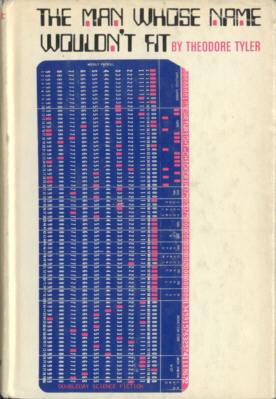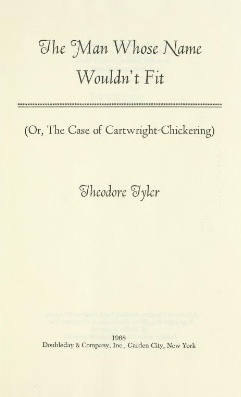I read a paperback book no later than the 1976 (I strongly believe that I read it before I graduated high school, possibly years before). I think I bought it from a garage sale, so it may have been even older. The book was in English.
The setting was modern day (for its time), and the main character worked at (I believe) a company that made plastics. He was a white-collar worker, I believe he was a scientist. He had a very long hyphenated last name.
At the start of the story, the company bought a new computer or database for human resources. His boss called him into his office, and explained that the new computer was unable to store his last name. The company may have been willing to work with an abbreviated last name, but I'm not sure, but the character refused to do so.
Because of this, he was fired.
The main character was angry and wanted to destroy the company. He developed some sort of mold or fungus that ate plastic. He released this.
At some point I believe his previous secretary joined him in his crusade. I believe she was an older woman, but that may have been a product of my age. I think that she was the one that used the phrase "It's a hyphenated name!" as a slogan.
I think that he won, and eventually released a form of his mold that would destroy plastics in dumps and make it so that future plastics would have a more limited lifetime.
This wasn't a particularly good book, and I don't remember the author's name. The cover was, I believe, reddish with some sort of machinery on it, but I don't know for sure.
I do not believe this is Mutant 59: The Plastic Eaters.


